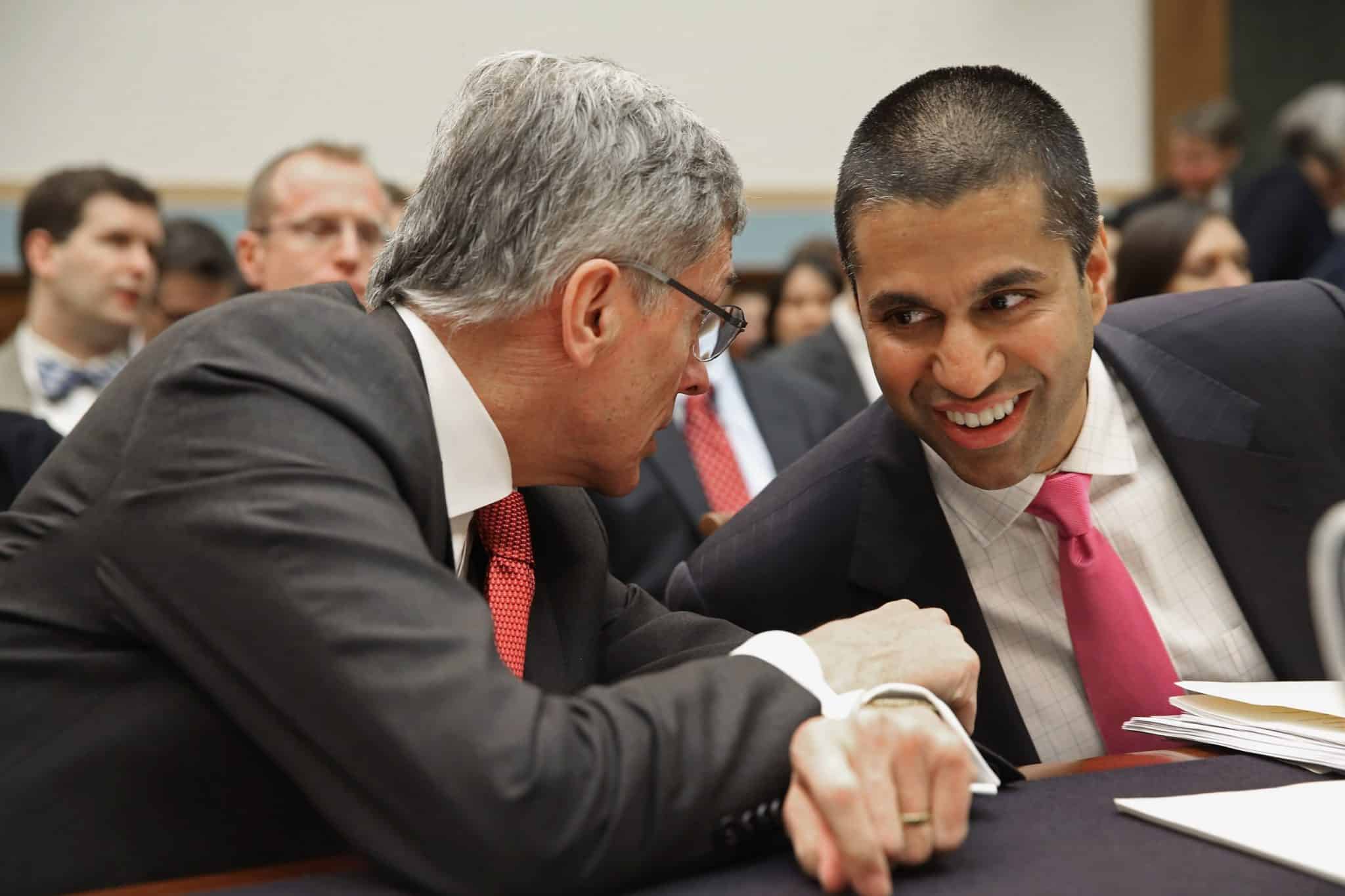THE FEDERAL COMMUNICATIONS Commission’s plan to jettison its net-neutrality policies located a surprise supporter this week in respected generation enterprise analyst and blogger Ben Thompson. In a weblog post-Tuesday, Thompson argued that he helps internet neutrality. However, thinks the FCC…
THE FEDERAL COMMUNICATIONS Commission’s plan to jettison its net-neutrality policies located a surprise supporter this week in respected generation enterprise analyst and blogger Ben Thompson.
In a weblog post-Tuesday, Thompson argued that he helps internet neutrality. However, thinks the FCC is proper to repeal rules that ban broadband companies like Comcast and Verizon from blocking, slowing down, or in any other case discriminating towards the criminal content material.
The FCC’s authority to enforce internet neutrality comes from its designation in 2015 of broadband companies as “common providers”under Title II of the Communications Act. That method may be handled further by telephone companies, even though they are exempt from some of the more strict guidelines that apply to phone offerings. The FCC now proposes to throw out almost all of the 2015 guidelines.

Thompson argues that designating broadband carriers as common providers is a “heavy-handed” manner to enforce internet neutrality, echoing industry voices and FCC chair Ajit Pai. Thompson argues, “pre-current law and antitrust regulation, along with media strain, are effective at policing bad conduct.”
But it’s a long way from clean that that pre-present protections can save you awful conduct employing ISPs. The FCC spent years attempting to find some way to police internet companies without labeling them as Title II vendors. It failed time and again, and Thompson doesn’t offer a resounding opportunity approach.
To bolster his claim that in advance rules are powerful, Thompson cites a 2005 FCC research into claims that Madison River Communications, a North Carolina-primarily based DSL net issuer, blocked entry to the net-based cellphone provider Vonage to prefer its personal voice service. As an end result of the research, Madison River agreed now not to dam Vonage or similar providers without a need for the Obama-era rules.
The problem with this argument is that at the time of the FCC research, DSL changed into categorized as a Title II service. The business enterprise even noted not unusual-carrier policies in its agreement with Madison River.
That’s vital, because the following time the FCC attempted to forestall a broadband issuer from hindering a service, a federal court ruled that it had overstepped its bounds.
In 2008, the FCC ordered Comcast to prevent slowing BitTorrent visitors on its network. Thompson argues that the Comcast case is insignificant because Comcast had stopped throttling BitTorrent by the point the FCC issued its order. But the real significance of the case turned into a federal-court docket ruling that the FCC didn’t have authority to alter Comcast’s internet provider, in part because it wasn’t a Title II service.
The FCC accepted internet-neutrality rules in 2010. However, it changed into sued through Verizon. In 2014, the equal federal court docket again dominated that the FCC might want to reclassify broadband vendors as Title II services to enforce its regulations.
The FCC later downplayed the importance of Title II inside the Madison River agreement while it reclassified DSL as a statistics provider, rather than a commonplace provider. But the 2008 and 2014 rulings make it not going that the FCC should have compelled Madison River to stop blocking Vonage had DSL not been a Title II career at the time.
In an electronic mail to WIRED, Thompson argues that the Federal Trade Commission, rather than the FCC, could file suit in instances in which a broadband company blocks get right of entry to a competing provider. Pai has argued much the identical. And in blatant cases, the FTC possibly should act. But the FTC has no authority to issue blanket rules that ban blocking off or discriminating towards content. It can handiest address alleged violations after they occur, on a case-through-case basis. And Democratic FTC Commissioner Terrell McSweeny tells WIRED that the organization would not be able to forestall broadband providers from blockading different prison content material, giving preferential treatment to pick companies, or permitting businesses to pay for the better remedy.

Another of Thompson’s examples is illustrative. In 2011, cell provider MetroPCS started imparting its first 4G enabled phone and a $40 a month “unlimited” web plan to go with it. The seize: YouTube has become the most effective video carrier supported by the $forty plan. To view films from MetroPCS’s other partners, which reportedly blanketed NBC and BET, users had to improve to a $50 plan.
Thompson describes this, for instance of “0 scores,” the practice of exempting some offerings from a facts cap. For example, AT&T will allow you to watch as a lot DirecTV Now as you want without it counting toward your statistics cap.
There are arguments both for and in opposition to 0 scores, which isn’t banned through the Obama-era internet neutrality regulations, but the MetroPCS providing wasn’t zero-rating. The business enterprise’s handiest 4G smartphone at the time, the Samsung Craft, used a proprietary working device with a severely confined browser. “It may not do Javascript, as an example, so the overall variations of websites like Google Maps don’t work,” one reviewer wrote. “It might not play video from most sites, either.” As an end result, customers may want to circulate as lots YouTube as they wanted. However, they couldn’t watch Hulu, Netflix, or Vimeo.
This is exactly the kind of nightmare state of affairs that internet-neutrality advocates warn in opposition to a provider selecting and choosing which offerings are to be had on your plan. And the FTC could have little electricity to prevent it.
Thompson argues that plans like this brief-lived MetroPCS supplying are scarce, and evidence that blanket rules are not actually needed, especially when you consider that rules incur costs for broadband providers that might impede investment innovation. But the nation’s biggest broadband providers had been bound via some form of the internet-neutrality regime for a maximum of the past 12 years, so you shouldn’t assume to look many violations.

From 2005 till Comcast fit in 2008, broadband vendors were banned from blocking lawful content using an FCC coverage assertion. From 2010 until the ruling within the Verizon suit in 2014, they had been certain by a higher set of internet-neutrality rules. During the “whole year” between the 2014 ruling and the passage of the 2015 regulations, Comcast had to comply with internet-neutrality policies because of its 2011 merger with NBCUniversal. Verizon, likewise, was obligated under the terms of a 2012 agreement with the FCC not to block clients from using their choice applications.
If the guidelines go away, there may be the motive to assume these groups would violate net neutrality. Verizon today claims to help internet neutrality. In 2013, but, Verizon attorney Helgi C. Walker informed a federal court docket that the enterprise would allow content vendors to pay for special treatment on the enterprise’s network if now not for the FCC’s internet-neutrality policies. In the meantime, Comcast may backpedal far away from promises now not to allow groups to pay for priority treatment.
There might also but be a better way to put into effect internet neutrality than Title II. But casting off the present guidelines without changing them with something higher leaves regulators unable to police all, however, the worst behavior.
Popular
-

The bone-chilling on line horror genuine or fake?
A lot has come about in the beyond a week,”…
2395 0 -

The Perfect WordPress Theme for Bloggers
I have recently created this website to showcase all the…
210 0 -

-

Sicily tour with Titan Travel: review
An admirable trot spherical many of Sicily’s finest hits, among…
2924 0 -

U.S. high school seniors slip in math and show no improvement in reading
The nation’s high college seniors have shown no improvement in…
2335 0
Latest News
Decrease PEACHTREE, Ala. — toward the cease of a potholed country road, within the pc lab of a one-tale school,…




















